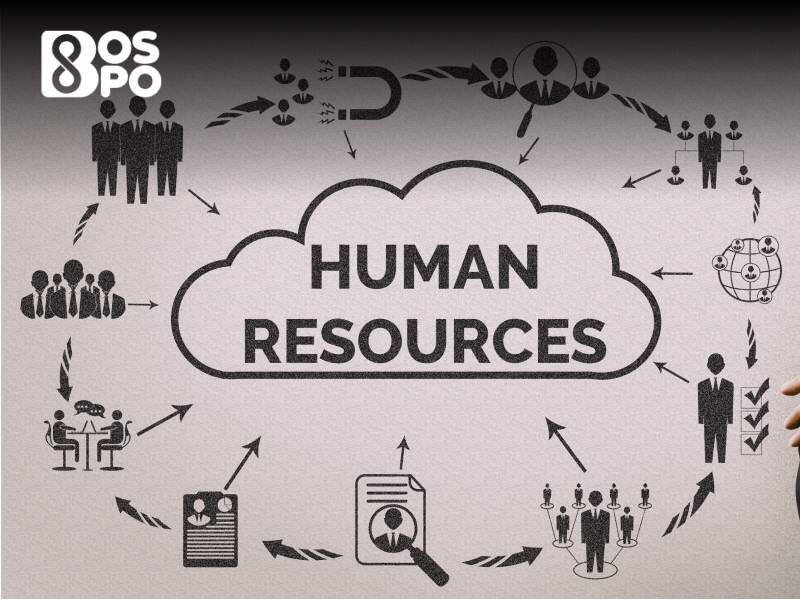The business environment today is quite complex and any organization wants to find ways of improving performance while at the same time cutting down on costs. A BPO company, for instance, BOSBPO is very essential in assisting businesses to meet such goals by offering a comprehensive range of outsourcing services to suit all industries. The BPO services are not limited to the basic services as they have expanded their scope and provide specialized and integrated services for different business domains. The following are some of the key services that may be offered by a BPO company;
Customer Support Services
Another major service that is usually provided by a BPO company is customer service. In the current market environment where the customer is the king, it becomes very important to ensure that customers are offered the best services as a way of making them stick to a certain brand. BOSBPO has been reputed for providing quality customer services through the provision of voice services that include inbound and outbound customer call management as well as non-voice services such as email and chat support. These services help customers get quick, quality assistance, thus improving their perception of the brand.

Technical Support Services
As technology is an important part of most companies, technical support is one of the services that is provided by BPO companies. BOSBPO offers technical support services to help the customers in problem solving and product usage and other technical issues. This service will be most useful for IT companies, software firms, and all businesses that have products that are not easy to understand and need support staff to explain. Outsourcing technical support helps the business to concentrate on its main operations while at the same time guaranteeing its clients quality service.
Back Office Support
These back-office operations, though very important, are usually very time-consuming and resource-demanding. Service delivery in this sector entails several functions such as data input, documentation, payroll processing, and accounting services. BOSBPO provides quality back-office support solutions for businesses that want to cut their costs and increase their output. Such important but very time-consuming processes are managed by BOSBPO, thus freeing up the resources of companies for more important projects.
Human Resource Management
The management of human resources is another very important area that BOSBPO as a BPO company can play a pivotal role in. In human resource management it covers all the activities from recruiting new employees to processing their payments and providing them with benefits, BPO outsourcing services are an effective way to manage the workforce. Some of the services may also involve personnel development, performance evaluation, and legal operations for employees. Through outsourcing HR services, companies can guarantee that they get the best workforce while at the same time meeting given legal requirements and reducing paperwork.

Finance and Accounting Services
BOSBPO’s specialized finance and accounting services provide realistic accounting solutions to companies seeking to enhance the control of their financial processes. These services comprise of the following; accounting services which include the preparation of books of accounts, taxes, reports, and managing of the accounts receivables and payables. This paper aims to argue that the external outsourcing of the finance and accounting work to the BPO company would be advantageous to the organizations to afford expert and professional financial services without the requirement of a professional accountancy staff. Not only that, but it also saves money while also guaranteeing that financial operations are managed only by experienced personnel with relevant work backgrounds.
Sales and Marketing Support
Apart from back office and technical support services, BOSBPO offers all the support services that deal with sales and marketing. Some of these services include lead generation, market research, customer relationship management among others and digital marketing solutions. To this end, proper outsourcing of BPO services for sales and marketing will help boost the market standing of a business, get more leads, and thus increase revenue. Through these services, companies will be able to deploy the right strategies in sales while BOSBPO will ensure that it meets its marketing needs without compromising its other business operations.
Data and analytics and business intelligence
They are utilizing big data and business intelligence for analysis and making pragmatic decisions. This is where a BPO company such as BOSBPO comes in after providing data analytics, and business intelligence services to assist organizations in analyzing voluminous information to enable more informed decisions and actions. Such services include data mining, client analysis, and reporting which are core to any competitive business within the current market. Through outsourcing these complicated operations, organizations are able to leverage data but not necessarily have to invest in their ability.

IT Support Services
IT is the life wire of any organization and it is therefore very important that organizations have sound IT infrastructures. In IT solution BOSBPO provides network solutions, security solutions, software solutions, and IT advisory solutions. These services make sure that the organizations can remain ahead in terms of technology and employ the services of the best minds without having to employ a company’s internal team of IT specialists. Outsourcing of IT support enables firms to save time, implement strong security measures and be in touch with technological changes.
| Service Category | Description |
|---|---|
| Customer Support Services | Provide 24/7 customer support, including handling inquiries, troubleshooting, and managing customer relationships through phone, email, or chat channels. |
| Technical Support | Offer IT and technical support services such as software troubleshooting, hardware management, network support, and system monitoring for businesses across various industries. |
| Human Resource Services | Manage HR functions like recruitment, payroll processing, employee benefits administration, and onboarding services, streamlining human resource management for businesses. |
| Finance and Accounting | Deliver accounting and financial services like bookkeeping, invoicing, tax preparation, auditing, and financial reporting, ensuring compliance with industry regulations. |
| Data Entry Services | Handle data entry tasks, including form processing, database management, data verification, and document indexing, helping businesses manage and organize information efficiently. |
| Marketing and Sales Support | Provide marketing services like social media management, content creation, lead generation, and telemarketing to enhance brand visibility and drive business growth. |
| IT Services | Offer IT outsourcing services, including web development, software development, application maintenance, cybersecurity, and cloud computing solutions for companies in different sectors. |
| Legal Process Outsourcing | Provide legal support services such as contract management, legal research, document review, and intellectual property services for law firms or corporate legal departments. |
| Supply Chain Management | Manage inventory, logistics, order processing, and procurement functions to optimize the supply chain process and improve overall efficiency for businesses. |
| Healthcare Support | Deliver healthcare outsourcing services, including medical billing, claims processing, transcription, and healthcare data management for hospitals and clinics. |
Conclusion
In conclusion, it can be said that a general BPO company like BOSBPO performs a great variety of operations for various requirements. In many corporate environments, BPO services are essential in providing crucial support functions ranging from consumer and technical support to back office support and data analysis thus enabling firms to operationally and financially massage and optimize their core competencies. By outsourcing a BPO company, businesses can utilize the tools, knowledge, and experience and thus improve their performance and become customer-oriented while attaining long-term objectives. This places BOSBPO in a strategic position in the industry as it offers tailored efficient outsourcing services that impact the success of clients from various industries.
Read Also: Basic Know How’s In Opening A BPO Company
FAQs:
Q1) What are the services of BOSBPO as a BPO firm?
There is a wide list of BPO services that are provided by BOSBPO, including customer and technical support, human resource solutions, back office services, accounting and finance support, sales and marketing support, data analysis, and IT support. All these services are meant to assist firms in the enhancement of efficiency, cutting of expenses, and productivity enhancement.
Q2) Outsourcing to BOSBPO means getting first-class services that will ultimately help my business grow, in what ways?
When offered to BOSBPO, companies are enabled to center their efforts on key organizational functions while we tackle and facilitate time-consuming processes. In so doing, companies can cut down on operational costs, increase organizational efficiency, provide quality service delivery than actually competing the service with in-house expertise, and also tap into a wide range of specialized skills and technologies that could be very costly for them to develop all by themselves.
Q3) Can BOSBPO deliver specialized/niche/BPO services for a particular industry?
Indeed, there is nothing wrong with industry-specific BOSBPO services being offered in this industry. We have worked with clients in different sectors, thus we are in a position to understand the specifics of every industry. If it is the IT assistance of a corporation or the clerical services of a financial corporation that you need, we offer specific services that will suit your corporate objective.









